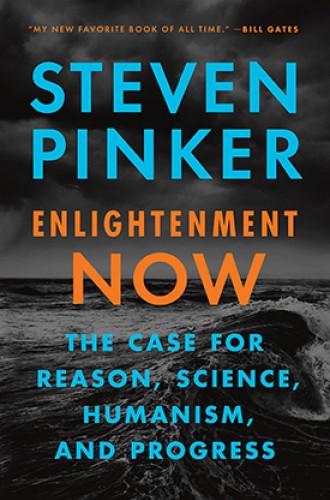Steven Pinker’s absolute faith in reason
"This is not a book of Enlightenolatry," writes Pinker. But it is.
Steven Pinker’s book is a polemic, although he claims the opposite: “This is not a book of Enlightenolatry.” But by his account, the Enlightenment and its values of reason, science, humanism, and progress have provided the “objective standards” necessary for human flourishing. They have exposed the ignorance and delusion of religion, politics, mysticism, and any other approach to the world not governed by data gathered through reason and science. These principles have advanced health, wealth, peace, equal rights, knowledge, quality of life, and happiness. For Pinker, the forward march of history is a glorious story backed by mountains of data and graphs all pointing in the right directions.
But data does not tell stories; interpretation does. Pinker’s interpretations flatten legitimate disputes about a variety of topics, from the value of crops engineered by the Green Revolution to the benefits of social media. His inattention to counterpoint is often joined to a callous presentation of the progress he wants to deface. For instance, he says poor people “are likely to be as overweight as their employers and dressed in the same fleece, sneakers, and jeans,” a bizarre statement of the modern abundance of food and clothing. He also notes all poor people also own air conditioners. Warren Buffet “may have more air conditioners than most people” but “the fact that a majority of poor Americans even have an air conditioner is astonishing.”
This narrative setup presents the Enlightenment as the arbiter of all things good. “Most people,” he writes, “agree that life is better than death. Health is better than sickness. . . . Abundance is better than poverty. Peace is better than war. . . . Happiness is better than misery.” Who could ever argue with that? And that is precisely the point. Pinker does not want argument. The Enlightenment is “timeless,” “nonpolitical,” “benevolent,” and the truth. These claims mark his argument as ahistorical and ideological.






